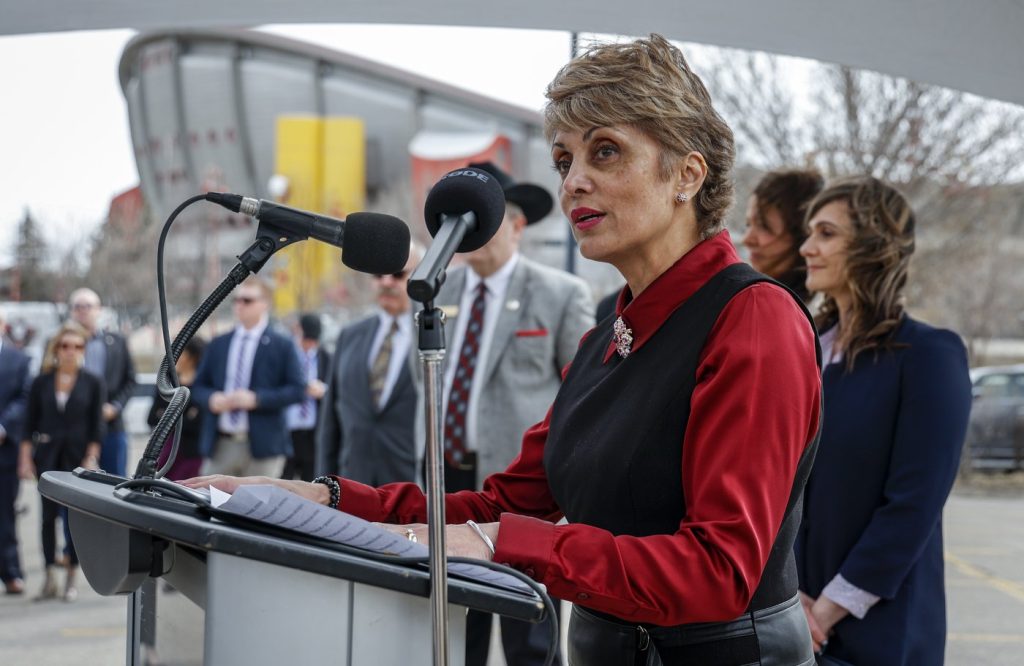UCalgary study shows promising results on magnetic treatment improving speech after stroke

Posted Apr 18, 2025 10:37 am.
Last Updated Apr 18, 2025 10:51 am.
The University of Calgary (UCalgary) is showing promising results on a new magnetic treatment that helps improve speech for those who have suffered a severe stroke.
Lucy Mullor, one of 44 patients involved in the trial, says it’s given her her life back.
“I’m working now, and I have a car, and I’m doing everything I could in the pre-stroke days – but aphasia is still there, but beginning to go away.”
Six months after her stroke, Mullor, who previously spoke four different languages, was diagnosed with aphasia, a condition that makes it hard to comprehend and formulate language.
“I couldn’t speak at all in the beginning, but now I can,” Mullor said.
Mullor applied to a clinical trial at UCalgary, where researchers used non-invasive brain stimulation to bring her speech back.
A news release by UCalgary says it was a double-blind, sham-controlled randomized trial.
Two groups received two weeks of intensive speech therapy, followed by over three hours of repetitive drills based on multimodality aphasia therapy (M-MAT), but only one group received transcranial magnetic stimulation treatment, according to UCalgary.
Shannan Love, the lead speech-language pathologist, said that participants gained more confidence, better moods and some even noticed more movement in their arm and hand – and because the study is double-blinded, it’s unknown if that’s due to the treatment or not.
The first author of the study, Trevor Low, told UCalgary that all of the participants showed improvements in their speech.
“We also saw speech improvements in the group that did not receive the stimulation,” Low said. “In that group, the gain was modest but evident, in the rTMS (repetitive transcranial magnetic stimulation) group the gains were significant.”
The device, also known as transcranial magnetic stimulation, helps excite the left side of the brain so it becomes more active, and is also used in conjunction with speech therapy.
“The majority of us have language on the left side of our brain; we’re born that way, we’re wired that way,” Dr. Sean Dukelow, who works at UCalgary’s Hotchkiss Brain Institute, told CityNews.
“And what happens after a stroke to the left side of the brain is language, in many cases, starts to shift over the right side, and it’s not well equipped to handle language.”
“It’s sort of adding turbo to what’s going on in the treatment that we’re delivering, and what we saw is really big changes in the patients, and it’s impressive,” he adds.
Mullor says she hasn’t fully recovered; however, she wants to use how far she has come to help others through social work.
The trial is still small, but the UCalgary research team hopes to grow the study across multiple sites in Canada.








